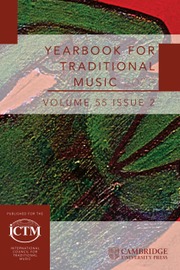Article contents
Of Lack and Loss: Assessing Cultural and Musical Poverty in Uttarakhand
Published online by Cambridge University Press: 06 December 2018
Extract
I define cultural poverty as the absence or reduction of the means to express culture; and culture, in turn, consists of the shared habits of thought, feeling, and action that bind individuals to social collectives. Any absence or reduction of the means to musical expression may be termed musical poverty, which is a subset of cultural poverty. What does it mean for an individual or a social group to not have or to lose the ability for musical expression? Consider the case of the Mughal emperor Aurangzeb who famously prohibited musical performance throughout his empire in 1668. Or consider the frequent bans on musical expression by the Taliban in Afghanistan over the past two decades (Baily 2009), and more recently by Islamic extremists in northern Mali. It is possible that such official prohibitions led to an overall loss of musical expression in their respective societies, but it is difficult to know this for certain. Baily suggests that censorship in Afghanistan led to increases in piracy and clandestine musical performance (ibid.). But even if we are willing to accept the possibility of an overall decline in musical forms of expression, how can we know whether this was not compensated in other, non-musical forms of cultural expression?
- Type
- Articles
- Information
- Copyright
- Copyright © 2013 by the International Council for Traditional Music
References
References Cited
- 9
- Cited by


